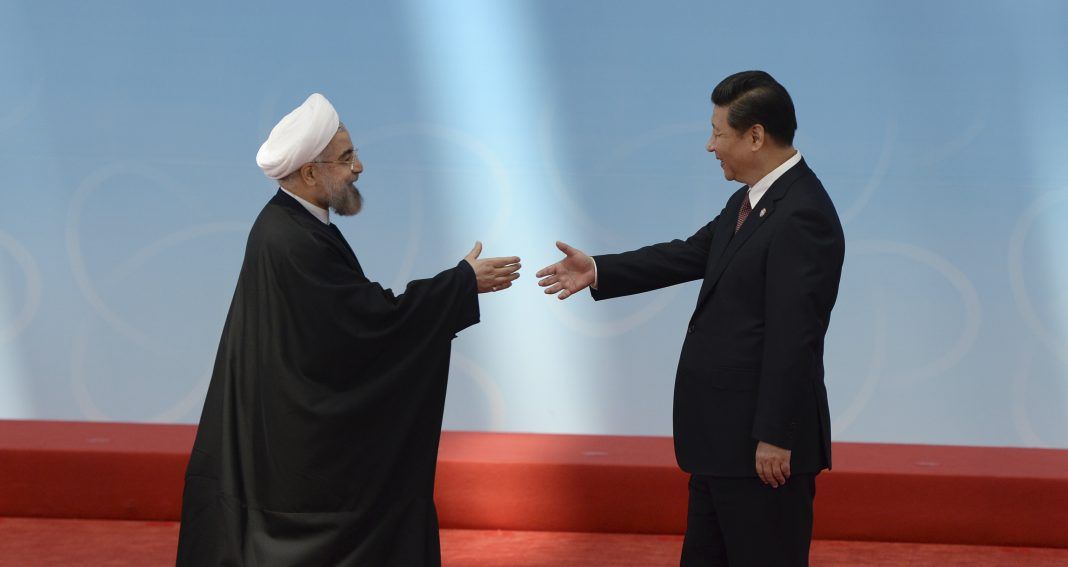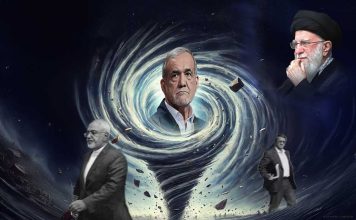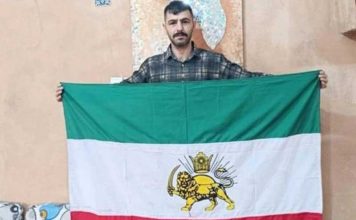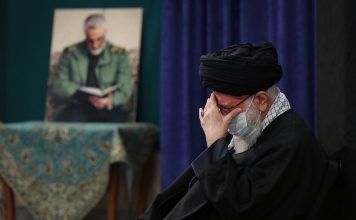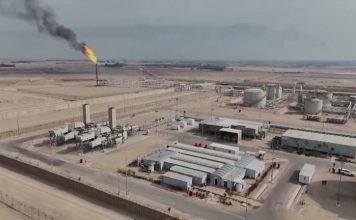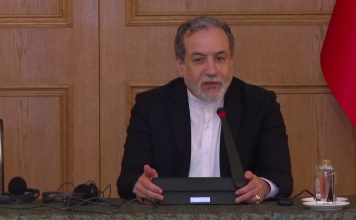A petition sent to the United Nations last week and signed by 113 Iranian-born personalities has raised concerns about a trade deal between Iran and China.
Discussions between Iran and China on the deal launched in 2016 led to a draft agreement which appears to offer China significant economic concessions in return for closer geopolitical, trade, and military ties.
The letter’s signatories argue that the deal — known as the Special Partnership Agreement — erodes Iran’s sovereignty, and they accuse the Islamic Republic of deliberately withholding information about the agreement from its citizens.
Several high-profile Iranian celebrities, politicians, human rights activists and academics have signed the letter including American-Iranian comedian Maz Jobrani; actress Nazanin Boniadi; anchor and Reuters producer Rudi Bakhtiar; Mahnaz Afkhami, a women’s rights activist and former minister of women’s affairs in pre-Revolution Iran; Javad Khadem, housing minister for Iran in 1979; former Iranian Labor Minister Abdolreza Ansari; and Ali Ehsassi, a serving Member of Parliament in Canada.
Speaking to Kayhan Life, Mr. Ehsassi said he was particularly concerned about the lack of transparency surrounding the deal.
“ The most distressing aspect of the Islamic Republic’s reckless gambit of entering into a bilateral Strategic Partnership Agreement is that it has adamantly refused to act in an accountable fashion by either consulting with experts or stakeholders, or sharing any of the pertinent details of a contemplated agreement with its citizens,” he said.
Mr. Ehsassi added that the deal fell foul of Iran’s domestic legislation.
“The agreement contravenes the Islamic Republic’s very own constitution. Article 152 of the Constitution of the Islamic Republic denotes that the Iranian Government must safeguard ‘the preservation of the all inclusive independence of the country and its territorial integrity,’ while Article 153 states ‘[a]ny form of agreement that would result in foreign domination over the natural and economic resources, army or culture of the country, as well as other aspects of national life is forbidden.’”
The letter was posted on Facebook, and published on the petition site Change.org late Wednesday evening for members of the public to sign.
In the letter, addressed to U.N. Secretary-General António Guterres, the signatories describe Iran’s motivations for pursuing the deal, explain why a balanced deal with China might not be achievable, and conclude that any deal would fail so long as economic mismanagement and corruption continue to plague Iran’s government.
“Even the limited available information regarding the Strategic Partnership Agreement reveals that the Islamic Republic intends to tether Tehran to Beijing politically, and embed China into the economic and social fabric of Iran,” the petition reads.
“Proceeding with such an agreement would be tantamount to committing Iran to a straitjacket that will severely restrain its political and economic sovereignty,” the signatories add.
Clément Therme — a postdoctoral research fellow at Sciences Po in Paris and a former Iran research fellow at the International Institute for Strategic Studies (IISS) in London — said any agreement between the two countries would likely be less beneficial to Iran than it hopes.
“The Islamic Republic would love for China to be its best friend, but that is not the case. China has excellent relations with Iran’s opponents, Israel and Saudi Arabia, so there will always be a limit to a potential partnership,” he said.
“Trade between these two countries is diminishing as well, because of a fall in oil exports and because China prioritizes its relationship with the United States. So there are two limitations to the Special Partnership Agreement: the geopolitical regional dimension and the economic reality of trade between Iran and China,” he said.
Iran’s economy has been badly weakened by the Coronavirus pandemic, and extensive U.S. sanctions linked to the Trump Administration’s Maximum Pressure campaign, which have dissuaded countries from doing business with the Islamic Republic.
In recent months, the Iranian government has attempted to offset its financial losses by trying to recoup outstanding debts owed to the state from countries like the UK, applying for a loan from the International Monetary Fund (IMF) and creating strategic partnerships with countries such as Venezuela and China.
The Iranian government has yet to reclaim a 450 million pound debt owed to Iran by Britain for the sale of tanks during the Shah’s reign, which was never completed. In April, the U.S. blocked Iran’s request for a 5 billion dollar emergency loan through the IMF’s Rapid Financial Instrument, designed to assist countries struggling with COVID-19, saying the Iranian government had billion-dollar accounts at its disposal.
While the U.N. does not have powers to intervene in the agreement, the signatories hope the letter will draw attention to the deal.
“Given that Iranians within Iran are now chafing under the heavy burden of censorship and are reminded daily of the dire consequences that accompany any expressions of their discontent, a significant dimension of this initiative is to raise public awareness,” Mr. Ehsassi said.

